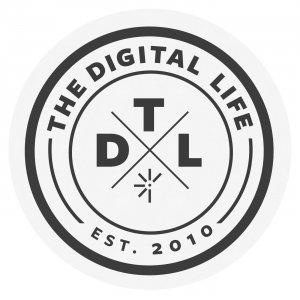The Digital Life

Digital Patronage
Jon: Welcome to episode 133 of The Digital Life, a show about our adventures in the world of design and technology. I'm your host, Jon Follett, and with me is founder and co-host, Dirk Knemeyer.
Dirk: Greetings Jon.
Jon: For this week's topic, we're going to discuss the recent announcement from Mr. Mark Zuckerberg as a celebration of the arrival of his first baby that he and his wife were going to be giving 99% of their Facebook stock over to humanistic, charitable causes over the course of a lifetime, over their lifetimes. They're going to pursue curing diseases, personalized education, the sorts of big problems that we'd like to see tackled. I think it's a very interesting move by Mr. Zuckerberg for a couple reasons, and it's also sort of reflective of a larger shift, I think, in the way the digital gilded age is playing out in front of our eyes.
It's a new era of wealth, and we're seeing how it's being handled by this century's luminaries. You've got a lot of people with a lot of money. This has happened many times before in human history, and there's an interesting take on this as to how our world works now with so much concentration of wealth in the hands of very few. I wanted to dig into that a little bit today. We all know the classic example of this is the great amount of wealth that was centralized in the Medici family which helped fund a lot of the art and science that made up the Renaissance.
A very important leap forward in human knowledge was facilitated by the grand accumulation of wealth through a family that had massive influence in banking, in religion, I think they had 4 popes as part of that family, and then of course, all sorts of nobility as well, and just multiple centuries of dominance. 13th, 14th, and 15th century they spent accumulating this wealth. Eventually it has this sort of positive outcome insofar as looking at the Renaissance as a positive thing.
In today's world, we have the equivalent of that family wealth in the Zuckerberg family. Interestingly enough, 12 years ago, Mark Zuckerberg was a student at Harvard, so we've compressed the amount of time that it takes to accumulate massive wealth and leverage by, oh, I don't even know what that factor is, but 3 centuries versus 12 years, that's at least an order of magnitude there. Additionally, as much as the Renaissance had global impact, it was ... In large part, that influence started in
Europe, and then had ...
Dirk: It started in Italy.
Jon: Yeah. It started in Italy ...
Dirk: For a long time, just Italy.
Jon: .. and then had growing influence. Both the problems that the Zuckerbergs are willing to take on and the distance that their influence can travel, it's global. Not only do you have this very important, very influential person, like I said, very recently was a student at the same time, he has global impact now. These are the plutocrats of our society. In watching all of this play out, and there are plenty of other examples we can get into, the Bill & Melinda Gates Foundation, Warren Buffett has done things in these areas as well.
Dirk: Many wealthy people have at least a tax write-off.
Jon: Right. Yeah, that's an interesting question. Is this any different from these previous ages of great wealth where it seems almost counterintuitive that we would assemble all this power and influence under 1 person to then defer to their judgment to redistribute things according to what problems are needed, need attention? Is it any different now, or is this just the digital age accelerating the same stuff that we've seen since the Renaissance?
Dirk: Yeah, I don't think it's any different, but I'm not going to go as far back to the Renaissance, because I'm not ... Even though I'm well studied in the art history, I'm not as studied in the political history governing that period. I'm going to go back to a more recent gilded age and talk about folks like John D. Rockefeller and Andrew Carnegie, because I think,






 Visit Podcast Website
Visit Podcast Website RSS Podcast Feed
RSS Podcast Feed Subscribe
Subscribe
 Add to MyCast
Add to MyCast